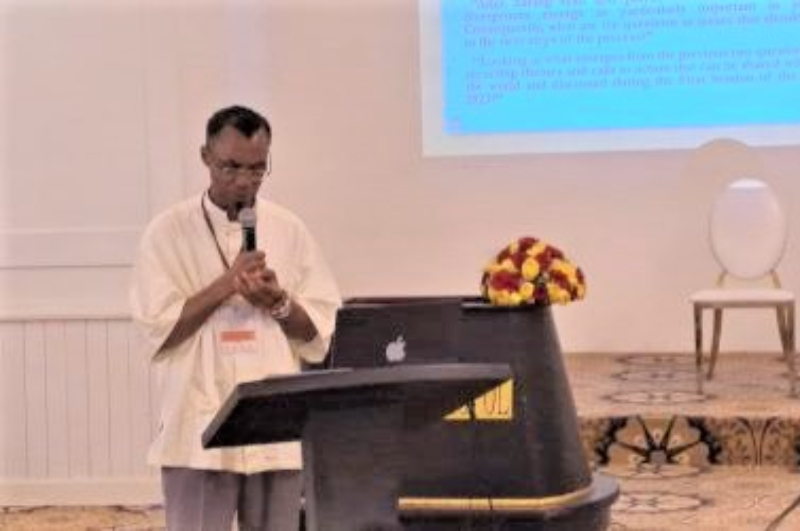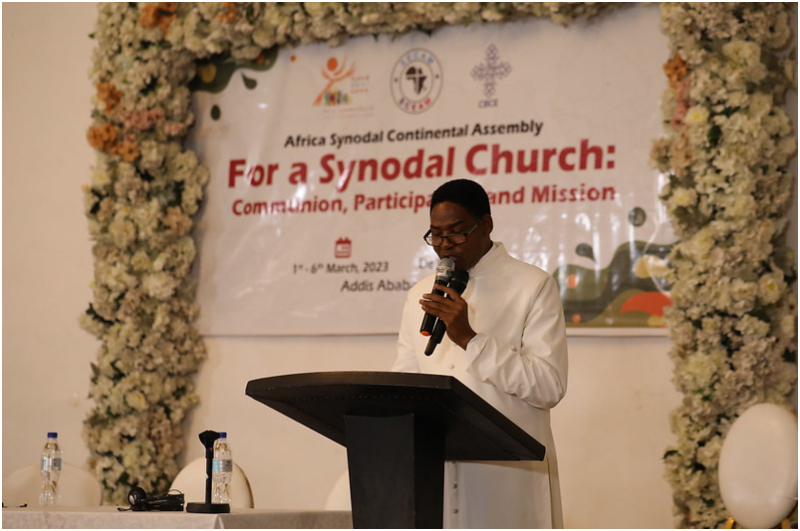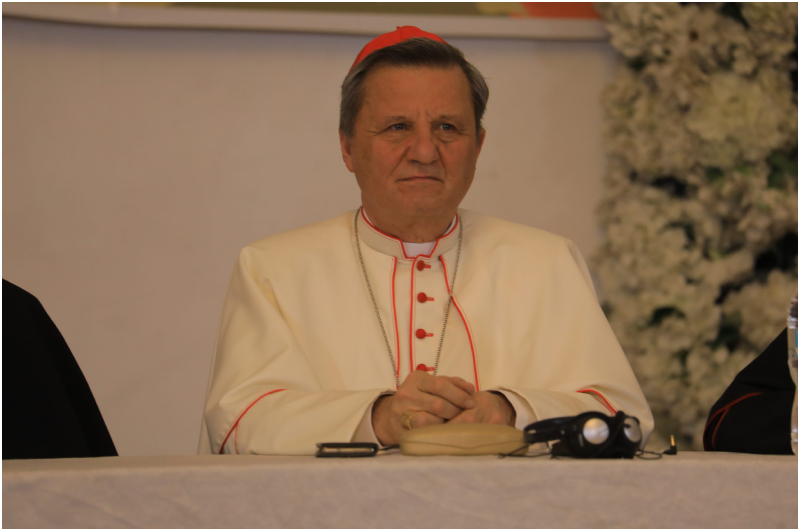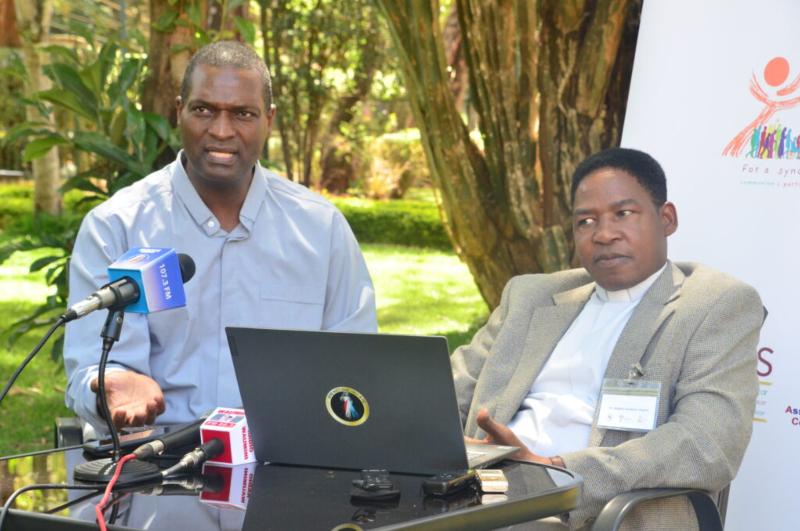

Members of the African Synodality Initiative (ASI) who are facilitating Synodal conversations in Africa have concluded their working session in Nairobi with a firm commitment to help deepen the understanding of the Synod process ahead of the planned Continental Synodal Plenary Assembly slated for early March in Addis Ababa, Ethiopia.
Addressing Catholic journalists at the end of ASI’s three-day working session that ended on Wednesday, January 25, Fr. Rafael Simbine, junior moderator of the African Synodality Initiative (ASI) team highlighted the need to ensure that those who will be participating in the African Plenary Assembly are also well well-acquainted with the Document for the Continental Stage (DCS) which has been in the public domain since October 2022.
“The second Working Session ends today with the commitment of all the participants to deepen ever more the understanding of the synodal process by reading deeply the Document for the Continental Stage, appreciating all the issues raised in the DCS from our African context, and applying the Spiritual Conversation Method,” Fr. Simbine said at the January 25 media briefing session.
He underscored the need to deepen the understanding of DCS using the Spiritual Conversation Method, which focuses on the quality of one’s capacity to listen as well as the quality of the words spoken.
Fr. Simbine the Secretary General of the Symposium of Episcopal Conferences of Africa and Madagascar (SECAM) highlighted the lack of understanding of the process of synodality as one of the challenges encountered in the synodal conversations.
“Some difficulties were noted especially in understanding the synod process and how to use the method of spiritual conversation,” the Priest addressed the media fraternity on behalf of Most Rev. Lucio Andrice Muandula the Second Vice-President of SECAM who chaired the activities of the working group in Nairobi.
He added, “All the participants shall now return home with the mission of preparing the delegates from their region for the Continental Synodal Plenary Assembly in Addis Ababa, in order to go there already familiar with the Document of the Continental Stage and the use of the Spiritual Conversation Method.”
ASI is a partnership between SECAM, the Jesuit Conference of Africa and Madagascar (JCAM), and the Association of Member Episcopal Conferences in Eastern Africa (AMECEA).
The January session in Nairobi followed the first working session, which took place from December 6 to 9 last year in Accra Ghana, and a virtual session that brought together Secretaries general from the sub-regional Episcopal bodies who shared some of the challenges and outcomes realized in Africa during the synod process.
The session held in Accra last year emphasized the need for the local church on the African continent to reflect on “the substantial tensions, divergences, and issues that have emerged as particularly important from Africa’s perspective and need to be addressed and considered in the next steps of the process” as well as “the priority areas, recurring themes, and calls to action that can be shared by Africa with the universal Church.”
In the just-ended second working session in Africama House, JCAM's headquarters in Nairobi, Kenya, the African task force team's objective was to re-work the African Synodal Continental Document with the new insights that have come from the local churches, and further discuss a possible program for the African Continental Synod gathering for the upcoming Plenary Assembly in Addis Ababa.
In his January 25, address, Fr. Simbine appealed to the people of God within the AMECEA region to work towards ensuring that no one is left behind in the synodal conversations.
“I appeal to you to continue working in collaboration with your bishops, and all relevant offices in order to ensure that no member of the Church is left behind for it is the wish of the Holy Father Pope Francis that we all journey together, listen to one another and to the Holy Spirit and together discern the way of being Church from now into the future,” the Priest said.
The Mozambican cleric added, “At this point and time, no one has the answers to all the questions raised by the people of God as captured in the DCS. That is why we must continue to journey together through this process of spiritual conversation.”
During the press briefing Fr. Simbine disclosed that about 200 persons are expected to participate in the Plenary Assembly, including 108 lay people. These will be represented by 44 adults, 36 young people, five novices, and five seminarians.
Besides, there will be 32 priests, 10 Religious women, six Religious men, as well as 13 bishops and 10 cardinals. Additionally, technical personnel will be represented by four members of the ASI and 11 journalists from Catholic media and communications agencies.
There will also be four delegates from other faith groups represented by a Muslim from Algeria, a traditional healer from the Democratic Republic of Congo, a Presbyterian from Ghana, and a Copt from Ethiopia.
Related Articles
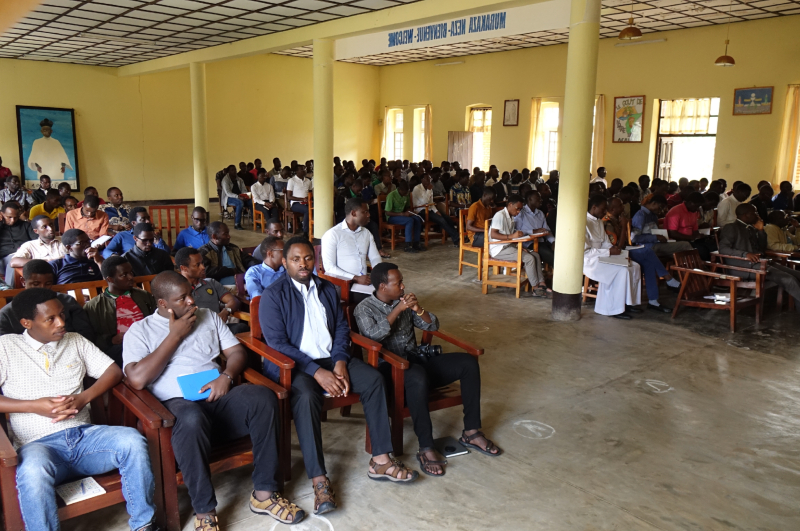
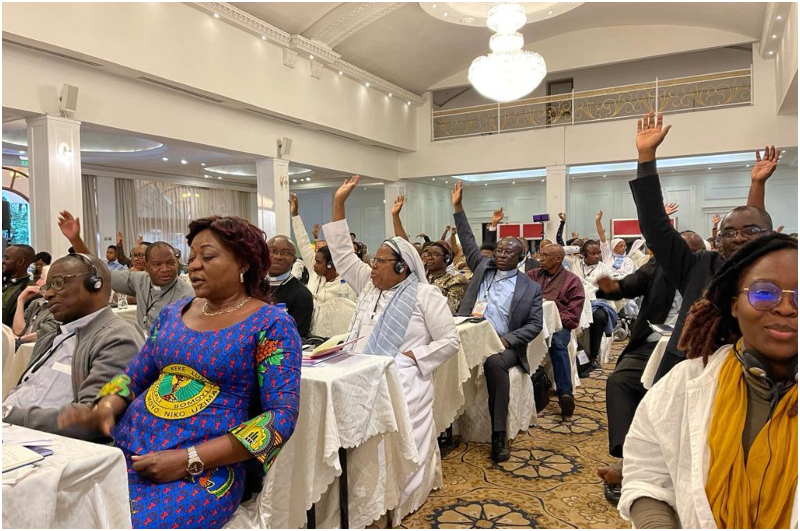
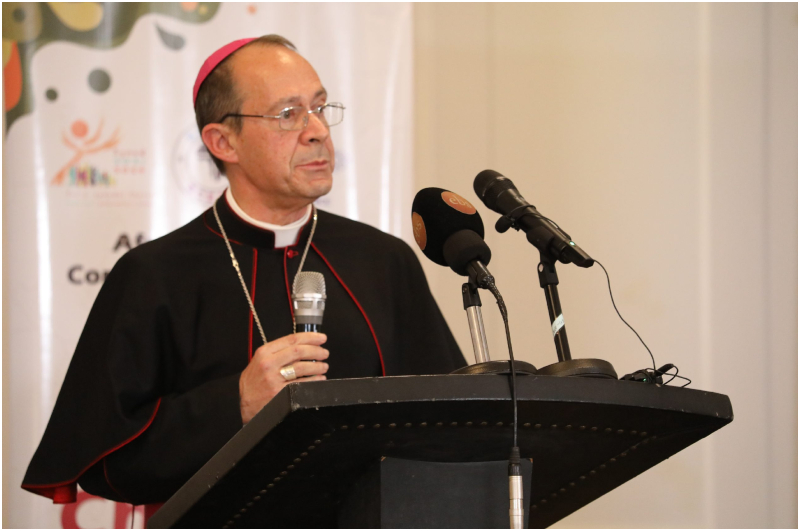
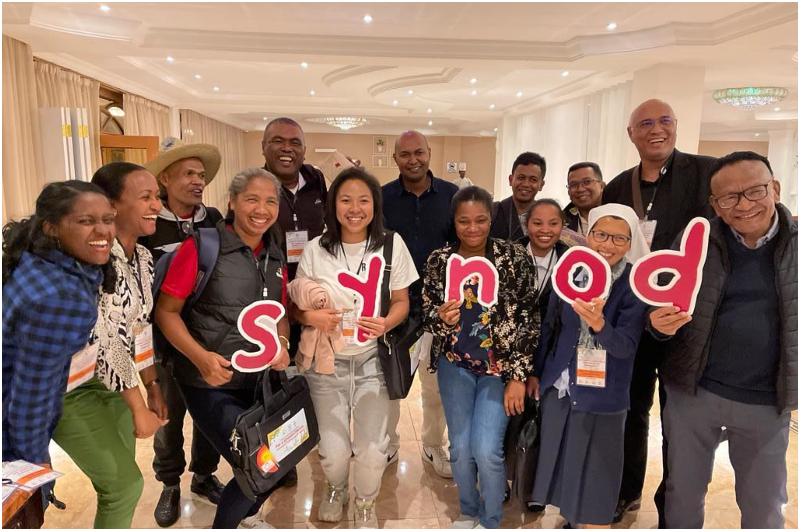
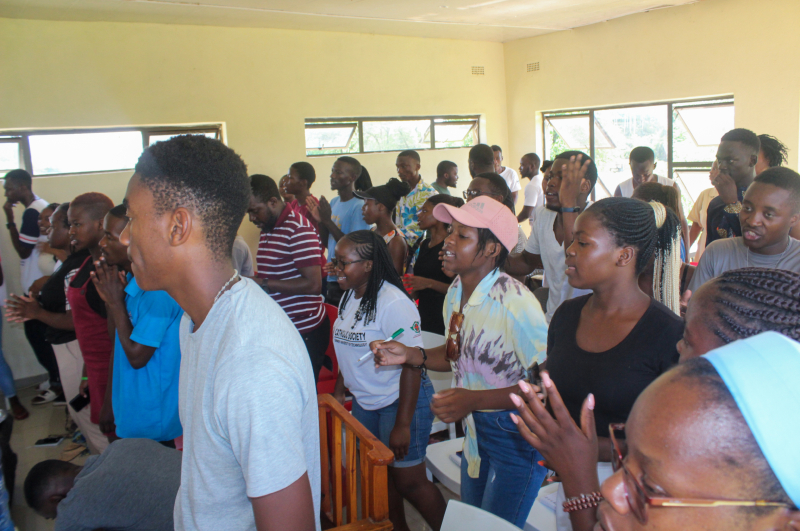
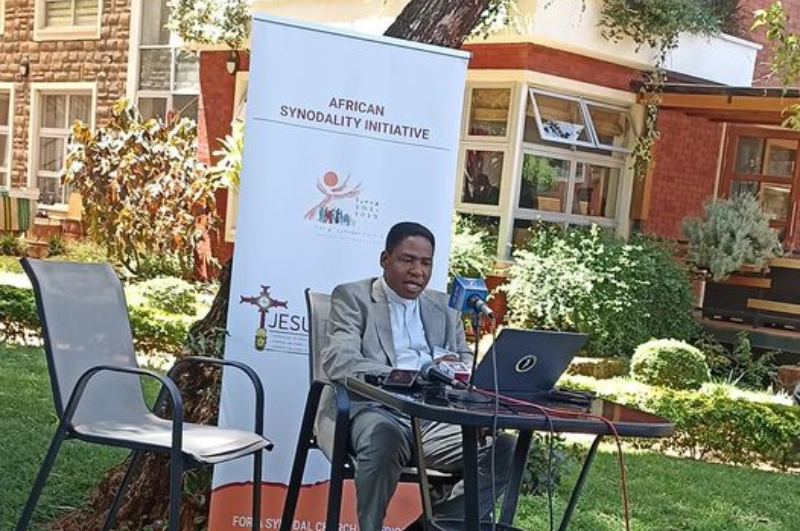
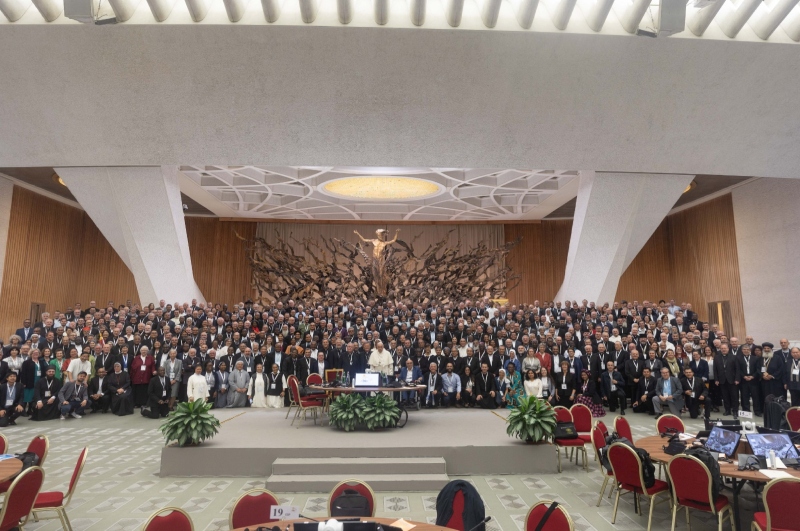
Select Payment Method
Pay by bank transfer
If you wish to make a donation by direct bank transfer please contact Fr Paul Hamill SJ treasurer@jesuits.africa. Fr Paul will get in touch with you about the best method of transfer for you and share account details with you. Donations can be one-off gifts or of any frequency; for example, you might wish to become a regular monthly donor of small amounts; that sort of reliable income can allow for very welcome forward planning in the development of the Society’s works in Africa and Madagascar.
Often it is easier to send a donation to an office within your own country and Fr Paul can advise on how that might be done. In some countries this kind of giving can also be recognised for tax relief and the necessary receipts will be issued.


